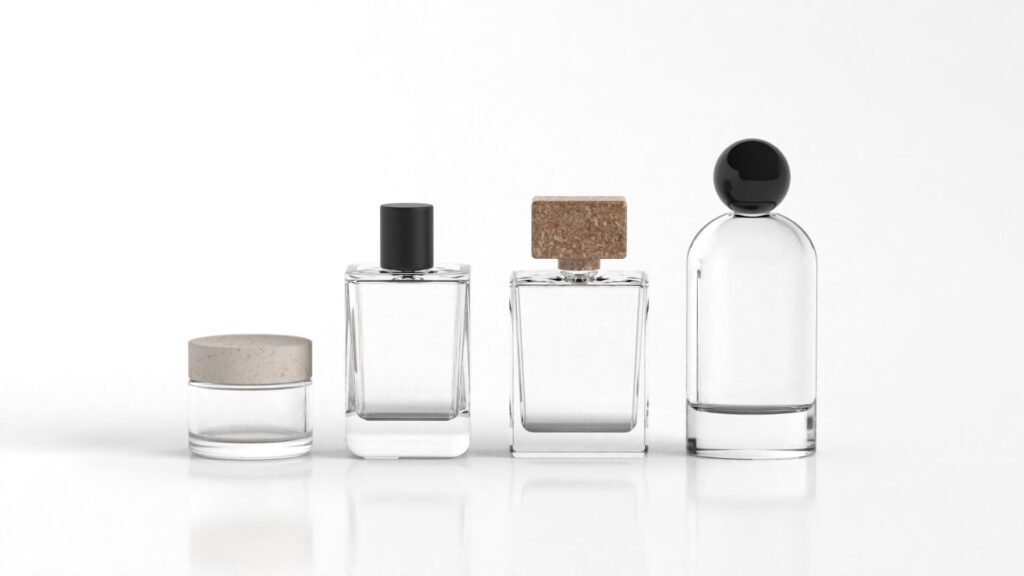Beauty brands are seeking sustainable alternatives for conventional plastic packaging – but high-end brands have high-end demands. Sulapac’s expanded portfolio, including a novel bio-based material ideal for fragrance bottle caps, allows cosmetic brands to meet their sustainability targets with a comprehensive range of applications, without compromising quality or aesthetics.
An award-winning material innovation startup, Sulapac, has launched Sulapac ® Luxe, a new bio-based material ideal for substituting hard plastics, including ABS, as part of its expanded portfolio for cosmetics and beauty packaging. The new material comes in response to demands from the beauty industry’s leading brands for more environmentally conscious packaging solutions that still offer high-end luxury feel, function, and aesthetics.


“One major challenge beauty brands face in replacing conventional plastics is the strict performance criteria of the chosen materials,” says Colin Strobant, International Sales Director at Sulapac.
“With Sulapac® Luxe, we have shown that conventional plastics can be easily replaced without compromising on quality. We have listened to our customers’ challenges, and the material has been through an extensive development process to ensure it stands up to the highest demands for luxury performance.”
High density, resistant to temperature fluctuations, ceramic feel and sound, and a glossy, smooth surface are some of the material’s characteristics, which are important for luxury brands. Sulapac® Luxe is not only recyclable, but as all Sulapac materials, it can also be made with recycled content, another feature important for many premium brands, according to Strobant. “Sulapac is a pioneer in recycled bio-based materials and our aim is to use only recycled biopolymers within the next 5 years ,” saysSulapac’s CEO and Co-founder Dr.Suvi Haimi. Sulapac® Luxe is made from industrially compostable materials, it leaves no permanent microplastics or toxic load behind.
Several high-end beauty brands have already shown interest in utilizing Sulapac® Luxe in combination with their existing glass fragrance bottles or jars. The material is commercially available to all manufacturers and slips seamlessly into existing injection molding production lines.


Sustainable solutions for various applications and manufacturing technologies
With the expanded portfolio Sulapac’s customers can now create packaging for various product areas including skincare, makeup, and fragrances. Shiseido’s brand Ulé utilizes Sulapac® for their lids, while a diverse group of skincare brands from Lumene to Manik package their products in Sulapac® jars. The selection of materials and production techniques allows brands to choose between a matt, glossy, or natural appearance complimented with a wide range of color options.
The successful launch of the BetterBarrel by Schwan Cosmetics last year, and Toly’s popular Infinity Line of powder compacts made with Sulapac® further demonstrate the versatility of Sulapac’s offering. Sulapac has also developed premium quality solutions in collaboration with CHANEL, including sustainable bottle caps created exclusively for the fragrance range LES EAUX DE CHANEL and the lid for the N° 1 de CHANEL Cream.
Besides materials for injection molding and extrusion, Sulapac’s portfolio includes solutions for thermoforming allowing cosmetic companies to create sustainable logistic trays and point-of-sale displays, as well as for 3D printing enabling sustainable prototyping.
Regulation and ambitious sustainability targets urge brands to switch to biobased, circular solutions
Demand for sustainable solutions is accelerating rapidly, as companies are actively seeking alternatives for certain conventional plastics widely used in cosmetics packaging, including thermoset materials. They are unrecyclable and thus potentially subject to restrictions by European Commission’s upcoming Packaging and Packaging Waste Regulation (PPWR). There are also upcoming country specific restrictions for certain materials, such as ABS, that push companies towards more sustainable solutions.
“We are happy to see the positive movement within the cosmetic sector as more and more brands are turning away from conventional plastic. Our job is to make this transition as easy and beneficial as possible – for brands, their customers, and the environment”, says Haimi.
“In Sulapac materials the pioneering sustainability features, circularity, functionality, and aesthetics come together in a unique way enabling our cosmetic customers to meet their sustainability goals and regulative requirements while fostering a high-end image and exquisite customer experience,” concludes Strobant.

